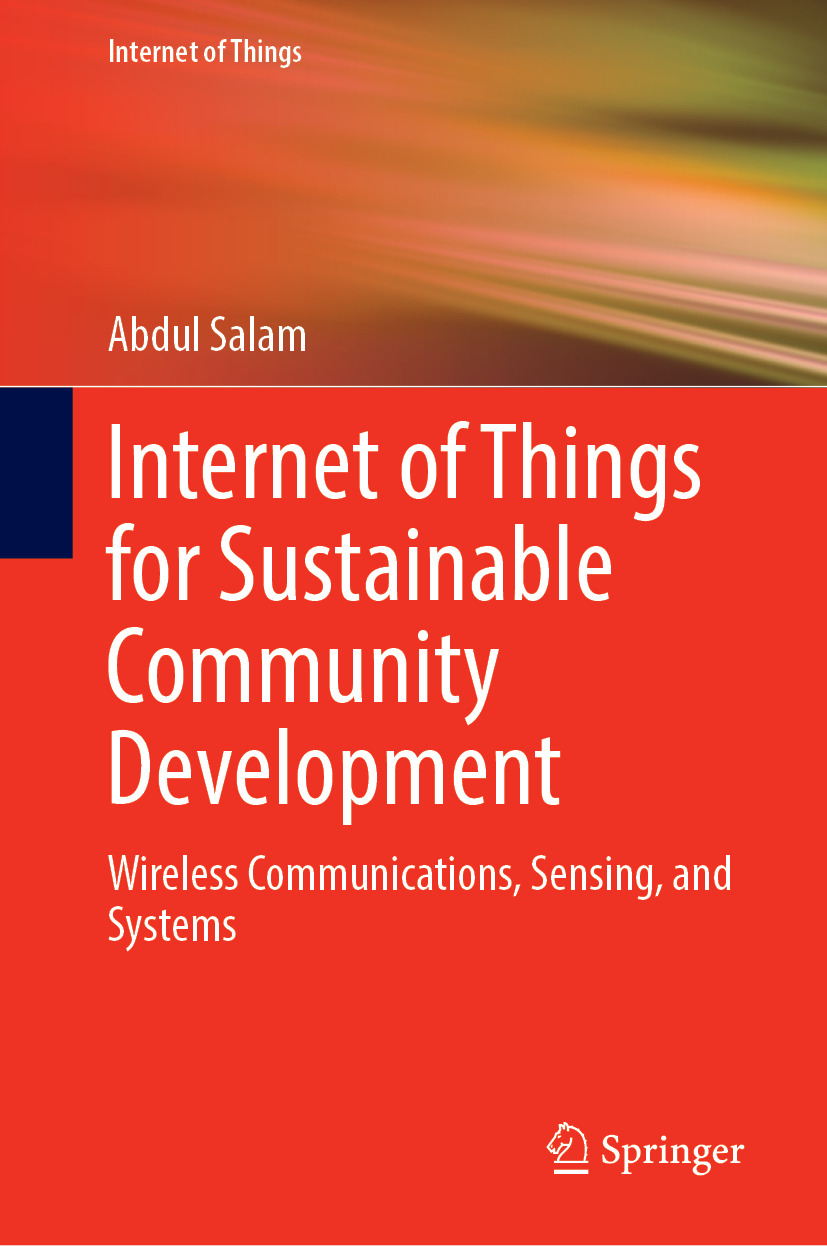- Publisher: Springer Nature
- Edition: 1st, 2020
- Hardcover ISBN: 978-3-030-35290-5
- eBook ISBN: 978-3-030-35291-2
- DOI:10.1007/978-3-030-35291-2
This book covers how Internet of Things (IoT) has a role in shaping the
future of our communities. The author shows how the research and education
ecosystem promoting impactful solutions-oriented science can help
citizenry, government, industry, and other stakeholders to work
collaboratively in order to make informed, socially-responsible,
science-based decisions. Accordingly, he shows how communities can address
complex, interconnected socio-environmental challenges. This book
addresses the key inter-related challenges in areas such as the
environment, climate change, mining, energy, agro-economic, water, and
forestry that are limiting the development of a sustainable and resilient
society -- each of these challenges are tied back to IoT based solutions.
- Presents research of the sustainable IoT with respect to wireless communications, sensing, and systems
- Provides coverage of IoT technologies in sustainability, health, agriculture, climate change, mining, energy, water management, and forestry
- Relevant for academics, researchers, policy makers, city planners and managers, technicians, and industry professionals in IoT and sustainability
Preface
Fires in Amazon
rainforest, Hurricane Dorian in Bahamas, and wildfires in California are
among some of the recent events related to the climate change. The rising
sea levels, higher temperatures, and extreme precipitation are some of the
causation of climate change. The communities around the world are coping
with these changes now. In this regard, an untypical effort from all sectors
of community is needed to address critical problems of adapting to climate
change and feeding 7.7 billion people.
The Internet of Things for
Sustainable Community Development addresses the key
inter-related environmental, climate change, energy, water, health, mining,
agroeconomic, and cybersecurity challenges that limit the development of
sustainable and resilient society. The aim of this book is to present an
integrated depiction of how the Internet of Things “IoT” can stimulate the
sustainable community development. The expertise across multiple domains
including engineering and technology, ecosystems and natural resource
management, environmental toxicology, human health, agriculture, mining, and
urban underground infrastructure monitoring is introduced to examine
important environmental challenges that can be solved with applications of
recent advancements in Internet of Things.
In these domains, the sensing data is generated
by a wide range of sensors, from point-based direct in situ measurements to
airborne and remote sensing for global coverage through satellites. In each
domain, the sensing requirements change considerably, stretching from plant
level water status to field level soil moisture, and regional level cloud
hydrometer to global scale climate crises and greenhouse gases. The
integration of huge volumes of data being generated across these
spatial–temporal scales is a major challenge. Moreover, the transmission and
processing of this data in decision support systems to address
sustainability challenges requires cross-disciplinary endeavors with
expertise in sensing, wireless communications, systems science, and
modeling, in addition to the specific domain knowledge. The Internet of
Things has strong potential to foster the creation of these
cross-disciplinary next-generation sensing and communication systems using
IoT. These IoT systems for data gathering, wireless communications,
processing, and presentation of sensing data are vital to get insights into
the biological, physical, and
The Internet of Things for
Sustainable Community Development presents a portfolio of
cutting-edge, interdisciplinary research developments and challenges in IoT
sensing, communications, and systems. It provides a well-founded coverage of
these technologies with rigorous focus on scientific concepts, evolution,
and applications to sustainability. The comprehensive contents are arranged
systemically to provide the scientific foundations of Internet of Things for
sustainable community development. The book covers research and innovation
ecosystem of the Internet of Things for sustainability in the following
major areas that are explored in this book. These areas highlight
converging activities that enable the main cohesive objective
• Sustainable Energy Systems
• Sustainable Water
• Human Health
• Sustainable Mining
• Decision Agriculture
• Storm and Wastewater
• Sustainable Forestry
About the Author
Dr. Abdul Salam received the B.Sc. and M.S. degrees in computer science from Bahauddin Zakariya University, Multan, Pakistan, in 2001 and 2004, respectively, the M.S. degree in computer engineering from UET, Taxila, Pakistan, in 2012, and the Ph.D. degree in computer engineering from the Department of Computer Science and Engineering, University of Nebraska–Lincoln, Lincoln, NE, USA.
He was a Lecturer with the Department of Computer Science, Bahauddin Zakariya University, and the Department of Computer Science and Information Technology, Islamia University, Bahawalpur, Pakistan. He is currently an Assistant Professor with the Department of Computer and Information Technology, Purdue University, West Lafayette, IN, USA. His current research interests are in the areas of digital agriculture, wireless networking, and Internet of Things.
Professor Salam is a Member of the Realizing the Digital Enterprise research group and Center for the Environment (C4E), a Purdue’s initiative for interdisciplinary, problem-driven research and teaching. He was a recipient of the ICCCN 2016 Best Student Paper Award, the Robert B. Daugherty Water for Food Institute Fellowship, the Gold Medal MS (CS) on securing first position in order of merit, and the 2016–2017 Outstanding Graduate Student Research Award from the Department of Computer Science and Engineering, University of Nebraska–Lincoln. He served the Pakistan Army for 9 years in a number of command, staff, and field roles. He held the principal position at the Army Public School and College, Thal Cantonment. He is the Director of the Environmental Networking Technology Laboratory. He has served as an Associate Editor for the IEEE GRSS Remote Sensing Code Library from 2016 to 2018. He is an Associate Editor of the Advanced Electromagnetics Journal.
| Table of Contents: |
| By clicking on the URLs below you can access the abstracts for each chapter. | ||
| Internet of Things for Sustainable Community Development: Introduction and Overview | ||
| Author(s) | Abdul Salam | |
| DOI | 10.1007/978-3-030-35291-2_1 | |
| Page | 1 - 31, Download from Purdue e-Pubs | |
| Internet of Things for Environmental Sustainability and Climate Change | ||
| Author(s) | Abdul Salam | |
| DOI | 10.1007/978-3-030-35291-2_2 | |
| Page | 33 - 69, Download from Purdue e-Pubs | |
| Internet of Things in Agricultural Innovation and Security | ||
| Author(s) | Abdul Salam | |
| DOI | 10.1007/978-3-030-35291-2_3 | |
| Page | 71 - 112, Download from Purdue e-Pubs | |
| Internet of Things for Water Sustainability | ||
| Author(s) | Abdul Salam | |
| DOI | 10.1007/978-3-030-35291-2_4 | |
| Page | 113 - 145, Download from Purdue e-Pubs | |
| Internet of Things for Sustainable Forestry | ||
| Author(s) | Abdul Salam | |
| DOI | 10.1007/978-3-030-35291-2_5 | |
| Page | 147 - 181, Download from Purdue e-Pubs | |
| Internet of Things in Sustainable Energy Systems | ||
| Author(s) | Abdul Salam | |
| DOI | 10.1007/978-3-030-35291-2_6 | |
| Page | 183 - 216, Download from Purdue e-Pubs | |
| Internet of Things for Sustainable Human Health | ||
| Author(s) | Abdul Salam | |
| DOI | 10.1007/978-3-030-35291-2_7 | |
| Page | 217 - 242, Download from Purdue e-Pubs | |
| Internet of Things for Sustainable Mining | ||
| Author(s) | Abdul Salam | |
| DOI | 10.1007/978-3-030-35291-2_8 | |
| Page | 243 - 271, Download from Purdue e-Pubs | |
| Internet of Things in Water Management and Treatment | ||
| Author(s) | Abdul Salam | |
| DOI | 10.1007/978-3-030-35291-2_9 | |
| Page | 273 - 298, Download from Purdue e-Pubs | |
| Internet of Things for Sustainability: Perspectives in Privacy, Cybersecurity, and Future Trends | ||
| Author(s) | Abdul Salam | |
| DOI | 10.1007/978-3-030-35291-2_10 | |
| Page | 299 - 327, Download from Purdue e-Pubs | |
Order at:
- In the news | Front Matter | Springer Link | Springer | Amazon | Barnes & Noble | Google Books (Classic) | Google Books (New) | IndieBound | alibris | BookDepository | Browns Books | WorldCat | Author @Google | Book Website | BibTex



